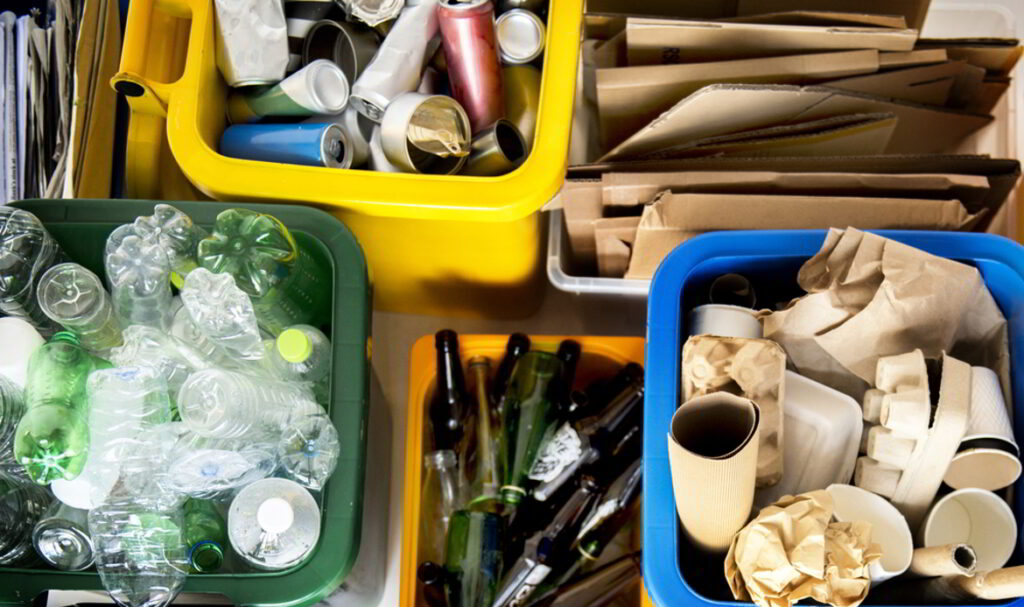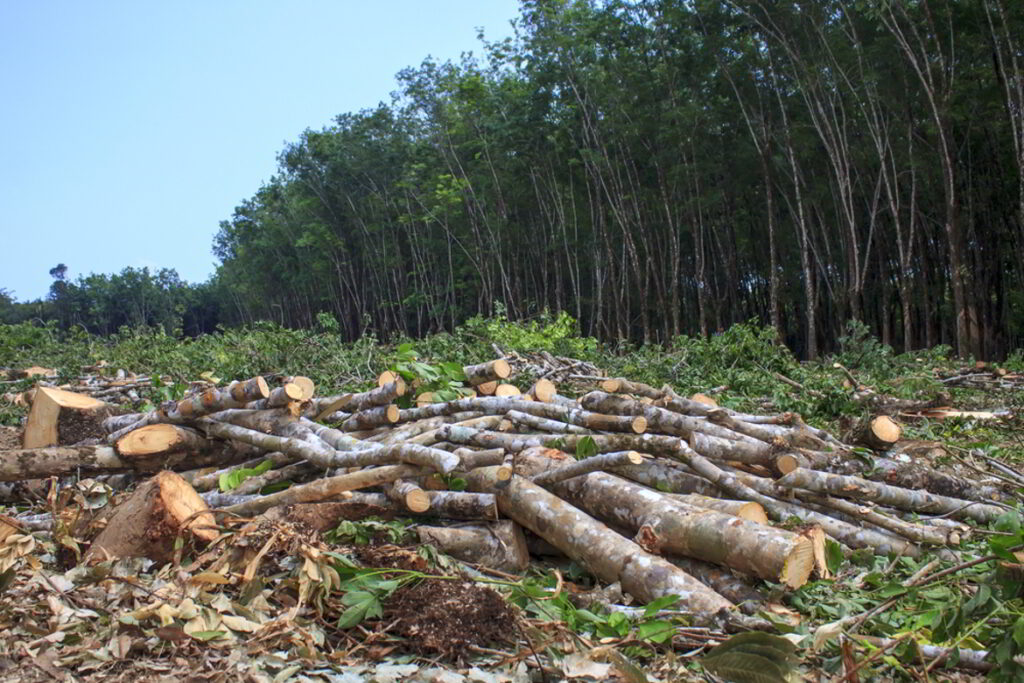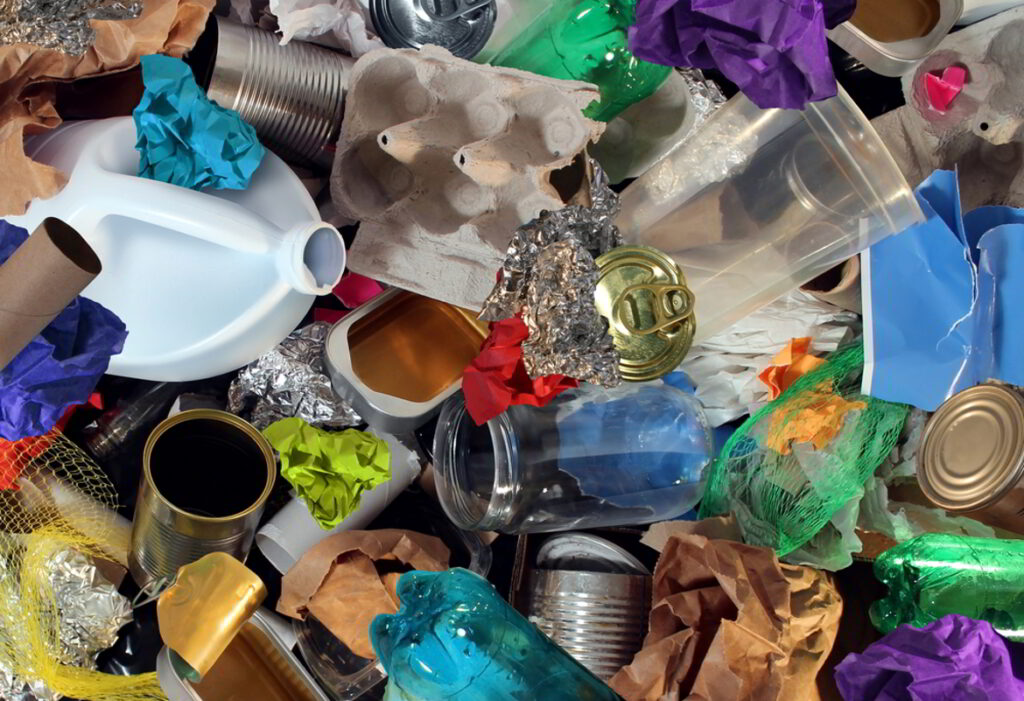Recycling is an activity that has already changed the world forever. Although it follows the simple principle of reusing and regenerating waste into something new, it is deemed to be one of the greatest solutions in waste management. With so many materials increasingly becoming capable of being recycled – from paper to electronics – now is the best time to support the planet and learn how to be eco-friendly with your waste.
In fact, research finds that the amount of waste typically collected and taken to landfills by the local authorities has fallen by 87% in the past two decades alone. The positive effect this has on our environment is significant, with estimates that the greenhouse gas emissions produced by waste disposal have fallen by almost 70% since 1990.
Yet despite its simple definition and clear benefits, recycling is still commonly misunderstood. As a result, the experts at RecycleZone have compiled this useful guide to the advantages and disadvantages of recycling, to help you make good waste decisions.

Advantages of Recycling Waste
1. Protects Our Finite Resources
Put simply, recycling waste helps to protect some of the world’s finite national resources from disappearing or being consumed entirely. For example, by recycling paper and wood, we are able to reduce the need for paper and wood to be retrieved from rainforests and ancient woodlands, many of which are an integral part of nature – used to prevent flooding and improve the air we all breathe.
With the affluent areas of the world witnessing an increased demand for new products and packaging, the effects are often felt by the poorest and most vulnerable populations abroad that live near natural resources and rely on these. For example, it has been noted that forest communities have frequently found themselves at risk of eviction and exploitation by those on the prowl for cheap new raw materials.

Fortunately, many organisations now have an initiative whereby they recycle their paper to reduce the rate of deforestation and protect our natural resources – something future generations will thank us for in years to come!
Not only does it protect the earth against deforestation, but by recycling simultaneously reduces the need to extract new raw materials through processes such as mining, which reduces energy consumption at the same time!
2. Reduces Pollution
One of the most renowned benefits of recycling our waste is that doing so reduces pollution. One of the leading pollutants comes from the industrial production of new materials, particularly plastic and metals. By recycling, we reuse the materials already produced and alleviate the need to produce new ones, which subsequently reduces the amount of pollution within the environment. Essentially, for all the waste that we recycle rather than throw away, we are limiting the need to produce new materials and harm the environment further than necessary!
With predictions that plastic production is set to double by 2050, our role in reducing this potential pollution has never been more important.
3. Reduces Landfill Waste
Recycling our waste prevents it from ending up in landfills where it often takes decades to decompose, if not longer. Unfortunately, due to the time non-biodegradable waste takes to decompose and the consistent influx of new waste, landfills often overflow. This has proven to be a very topical concern in recent years, with evidence that 80% of plastic in our oceans actually came from land – part of which is a result of littering or overflowing landfills. This is especially true of lightweight waste which can be blown into drains and rivers, leading it to the ocean.
Certain materials are particularly problematic. According to National Geographic, additives are often added to plastic to increase its strength, durability, and suitability. However, these same additives add many years onto the decomposition time of the plastic, with National Geographic estimating that these plastics could take up to 400 years to decompose fully.

4. Increases Employment Opportunities
Recycling plants inevitably require staff to work within them, therefore driving employment within local areas. These roles might vary from driving and collecting the waste, to manufacturing it into something new or segregating it. With a lot of waste comes a lot of responsibility, meaning that an increase in recycling will lead to an increase in job opportunities for locals.
5. Prevents Global Warming
With widespread discussion about the risk posed to the earth by global warming, recycling provides a worthy solution to a heated problem.
Global warming is a term used to describe the shifting climate on earth and science has largely attributed these changes to the emission of various gases into the air. Carbon dioxide, nitrogen and sulphur are among the most renowned offenders and are all products of waste disposal. By contrast, recycling involves very little waste disposal – if any! Therefore, recycling your waste inevitably prevents the emission of more, excessive gases.
Disadvantages of Recycling Waste
With all of these benefits, it is difficult to see why the UK are still failing to meet EU recycling targets. However, it is worth noting that there are some drawbacks to recycling, albeit minimal.
1. Compromised Quality of Materials
Products which are made from recycled materials tend to fare worse over time. This is because the materials are typically worn and torn prior to recycling, and therefore have lost some of their core properties such as durability. Due to this, the idea of recycled material opposed to new raw material is unattractive and products using recycled materials typically have to be sold at a much lower price!

2. The Costs of Recycling
- Financial Cost of Recycling
Recycling is also a very expensive habit. In particular, local councils and the government must fit the bill for arrangements such as regular collection vehicles and staff, new bins for all households, infrastructure and large recycling centres. In fact, it has been estimated that recycling your waste can cost three times as much as simply sending it to landfills! Effectively, there is a hefty price to pay to protect our planet.
- Environmental Cost of Recycling
This cost is not purely financial either. Like many other waste disposal processes, recycling still requires that the waste is transported to and processed within separate factories. As a result, recycling can become counter-intuitive since it consumes a lot of energy and can nonetheless contribute to pollution.
Additionally, when recycling is done incorrectly, there is also a large risk that the toxic waste created can become a contaminant within the environment which risks doing more harm than good.
3. Recycling is Unpopular
Despite various strong campaigns by the government and environmental groups to encourage and educate the population on recycling, many continue to be reluctant to recycle.
Due to the tedious and time-consuming nature of separating your waste into particular bins and organising collection, many look upon recycling unfavourably and are reluctant to adopt the practice. With only a 45% recycling rate reported in the UK in recent years, recycling needs to become even more established within both our homes and organisations in order to truly support our environment!
Whilst it is clear that there are both advantages and disadvantages to recycling, it is nonetheless true that the advantages are far greater – particularly for the future of our environment. By embracing recycling, we can protect our finite resources, protect against global warming and reduce pollution in both the air and seas.
As waste removal experts, we understand how important it is to make the right choices about removing waste in an eco-friendly way, and that is why we recycle 90% of the waste that we remove. If you have waste that you want to dispose of correctly, feel free to contact Recyclezone today to make an enquiry or arrange waste removal.